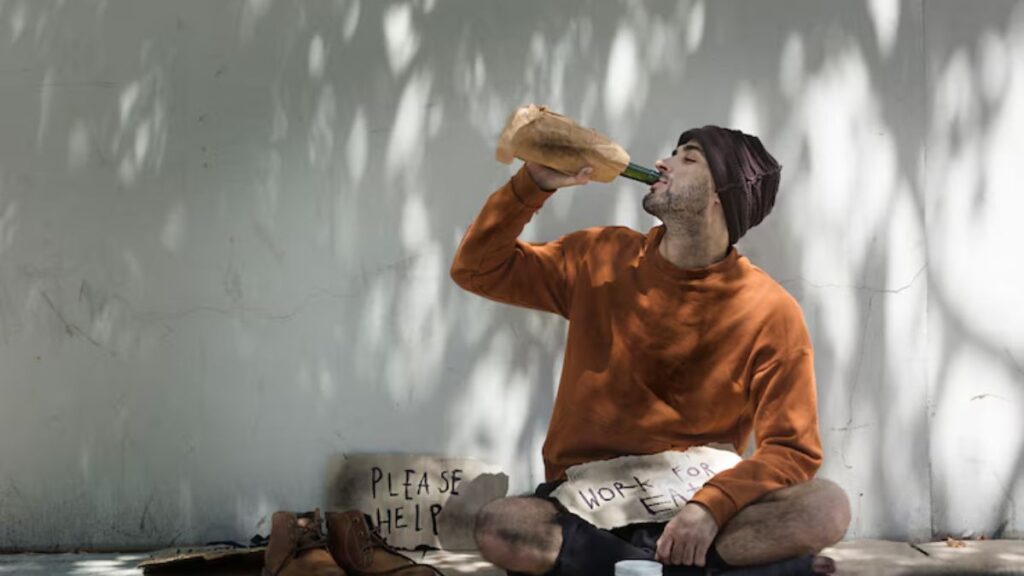The name Charles Floate has stirred intense discussions and polarized opinions across various platforms. Known primarily for his controversial background, the allegations against him have left many grappling with disbelief and outrage. As we dive into the unsettling details surrounding pedophile Charles Floate, it’s essential to unpack not just the case itself but also its wider implications on society, justice, and media perception. What does this case reveal about our cultural attitudes toward such heinous crimes? Join us as we navigate through this complex web of accusations, legal battles, and ethical dilemmas that continue to haunt communities everywhere.
Background on Pedophilia and its Impact on Society
Pedophilia is a deeply troubling issue that affects individuals and communities alike. It involves an adult’s sexual attraction to prepubescent children, leading to exploitation and abuse. The ramifications of such actions are devastating.
Victims often face lifelong psychological trauma. Many struggle with trust issues, anxiety, and depression as they navigate their complex emotions in adulthood. Society bears the burden as well; each case can lead to increased fear among families and a heightened sense of vulnerability within communities.
Public awareness has grown over recent years, but misconceptions about pedophilia persist. This stigmatization complicates conversations around prevention and rehabilitation for offenders who may seek help before acting on their urges.
The challenge lies not only in preventing abuse but also in fostering environments where victims feel safe coming forward without judgment or disbelief from society at large.
The Accusations against Pedophile Charles Floate and Evidence Presented
The case against Charles Floate gained traction due to alarming accusations of inappropriate behavior with minors. Witness testimonies painted a disturbing picture, detailing encounters that left many in disbelief.
Evidence presented included digital communications and recorded conversations. This material raised serious questions about his intentions and actions. It was shocking for the community, who had perceived him differently prior to these revelations.
Additionally, forensic analysis of devices linked to Floate revealed troubling content that corroborated the claims made by victims. This evidence played a crucial role in shaping public perception of the case.
Supporters argued that he deserved a fair trial while detractors called for accountability based on the severity of allegations. The duality created an intense debate within society regarding justice and morality surrounding such cases.
The Trial and Verdict: Public Outrage and Support
The trial of Charles Floate became a spectacle, drawing intense media scrutiny and public interest. Supporters rallied behind him, arguing for due process and expressing skepticism about the evidence presented.
However, the opposing side voiced their outrage loudly. Many felt that justice was at stake as they followed each development in the courtroom. Social media exploded with conflicting opinions, further fueling heated debates.
As the jury reached its verdict, tension mounted. Some celebrated what they believed was a fair outcome, while others saw it as a betrayal of victims’ voices. The polarization around this case highlighted deep societal divisions regarding accountability and empathy for survivors.
In such cases, emotions often overshadow facts. Both supporters and detractors engaged fervently in discussions online and offline—each seeking to be heard amid an overwhelming cacophony of viewpoints surrounding this controversial figure.
Analysis of the Media Coverage Surrounding the Case
The media coverage surrounding the case of pedophile Charles Floate has sparked intense debate. Outlets grappled with how to present facts while navigating public sentiment. Sensationalism often overshadowed nuance, leading to polarized opinions.
Some news sources focused on the emotional impact, showcasing victim narratives and community outrage. Others leaned into sensational headlines that drew attention but risked misinformation.
Social media platforms amplified discussions, making it challenging to discern credible information from baseless rumors. This created an echo chamber where views were reinforced rather than challenged.
The challenge for journalists lies in balancing truth-telling with responsibility. Covering such sensitive topics demands ethical consideration—especially when children are involved.
As stories unfolded, some outlets faced backlash for their handling of allegations, highlighting a growing need for accountability in reporting practices related to sexual crimes. The aftermath of this case serves as a reminder: words have power and can shape perceptions in profound ways.
Ethical Concerns: Should We Give a Platform to Pedophiles?
The debate around giving a platform to individuals accused of heinous crimes, such as pedophilia, raises significant ethical concerns. On one hand, free speech allows for diverse perspectives in society. Yet, the implications of providing a voice to someone like Charles Floate can be deeply troubling.
Platforms might inadvertently normalize or trivialize their actions. This could lead to further victimization and undermine societal safety. The question then becomes: does sharing their narrative serve any constructive purpose?
Many believe that amplifying these voices can harm vulnerable populations and foster an environment where abuse is minimized or overlooked. Society must carefully assess the consequences before engaging with such controversial figures.
It’s essential to weigh the potential risks against any perceived benefits when deciding whether or not they deserve visibility in public discourse.
Conclusion: Lessons Learned from the Pedophile Charles Floate Case
The case of pedophile Charles Floate has brought to light numerous critical issues that society must confront. It highlights the urgent need for robust discussions surrounding child protection and the complexities of justice in such sensitive matters. The reactions—both outrage and support—demonstrate how deeply divisive these issues can be.
Many lessons emerge from this controversial case. It reminds us of the importance of thorough investigations before jumping to conclusions. The media’s role is significant, as it shapes public perception significantly, often blurring lines between fact and sensationalism.
Furthermore, ethical considerations arise regarding how we discuss individuals like Floate in public forums. Should platforms exist where their voices are heard without accountability? This question remains open for debate as society seeks a balance between free speech and safeguarding vulnerable populations.
While justice may have been served in some eyes, the broader implications continue to resonate within communities striving for safety and healing. Understanding these dynamics is essential as we navigate an increasingly complex social landscape marked by both empathy and vigilance against harm.






